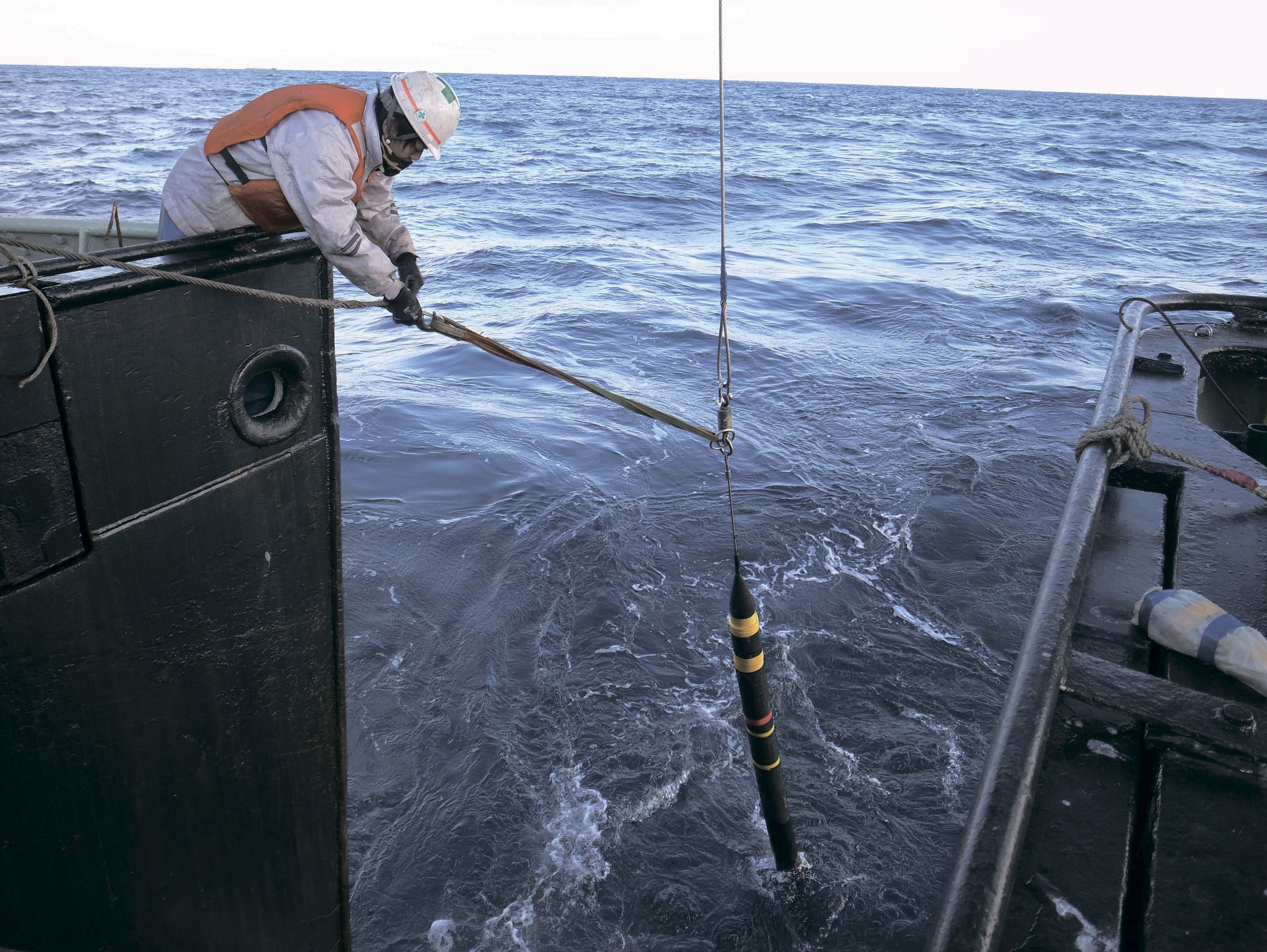A research team led by the University of Tokyo has found more than 30 concentrations of radioactive cesium in the first full-fledged study of the isotope's accumulation on the seabed near the crippled Fukushima No. 1 nuclear plant, scientists said Wednesday.
The research, spearheaded by the university's Institute of Industrial Science, found that cesium-137, which has a half-life of 30 years, tends to get absorbed by clayish soil and concentrate in seabed depressions.
For example, a hot spot 70 meters wide was discovered 32 meters below the ocean surface 5.9 km from the plant.



